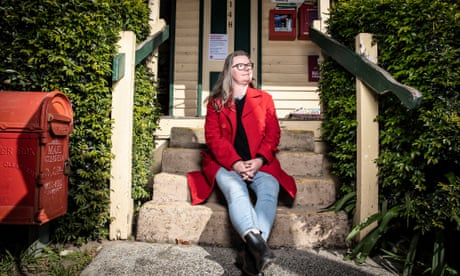- by foxnews
- 08 Apr 2025
Short-term rentals, long-term anguish for Australian towns struggling to find homes for locals
Short-term rentals, long-term anguish for Australian towns struggling to find homes for locals
- by theguardian
- 11 Jun 2022
- in news

Tourism is the lifeblood of Kangaroo Valley. Travellers flock to the lush greenery of the New South Wales town for the trails, rivers and wineries. It also hosts folk and arts festivals, is a popular wedding spot, and is a short drive from south coast beaches.
In the town of about 1,000 residents, there was just a single listing for a residential lease advertised this week. But if you want to stay for a few days, there are 76 homes listed on Airbnb, Stayz and VRBO to choose from.
Businesses in Kangaroo Valley have had to close due to a shortage of local workers and inability to house anyone willing to move there.
Short-term accommodation websites rose to prominence more than a decade ago as a relatively straightforward way for Australians to make money when their holiday homes were sitting empty.But now many listings on sites such as Airbnb have become commercially run properties available all year round.
That brings more tourism money into regional economies, but a growing number of towns are beginning to question whether the benefits outweigh the costs.
And governments at state and local level are increasingly looking to regulate the short-term accommodation sector as one lever to address the housing crisis.
Laura Crommelin, a senior lecturer at the University of NSW City Futures Research Centre, says the demographics of a town or suburb can begin to shift as more and more owners convert their residential properties to short-term leases.
Crommelin, who began researching technological disruption in private housing markets in the middle of the last decade, says smaller communities find it particularly hard to adjust.
She points to research from the Australian Housing and Urban Research Institute tracking changes in rent in Sydney, Hobart and the Shoalhaven during the first Covid wave in 2020, which found rents fell across the board when short-term accommodation stock returned to the long-term rental market. Even a modest reduction in Airbnb listings was associated with a significant reduction in rents, the research found.
In popular holiday towns, short-term accommodation can be much more lucrative than a long-term lease, she says.
In Kangaroo Valley, Natalie Harker has been following the short-term and long-term markets closely.
However, when Harker and her partner moved from Sydney to Kangaroo Valley to be closer to family four years ago, she experienced the lack of long-term rental properties for herself.
Harker says people moving from Sydney and working remotely for capital city wages have also helped push up prices and restrict availability. The local workforce has halved, she says, and many hospitality staff such as cleaners must now drive in from out of town.
The Kangaroo Valley Fudge House and Ice Creamery has closed due to staffing issues, and Harker says local businesses are considering renting houses in Bomaderry, about a 30-minute drive away, where they can offer new staff an affordable place to live.
Shoalhaven mayor Amanda Findlay acknowledges that the growth of platforms such as Airbnb is changing the nature of her community.
As tourist hotspots across the world clamp down on Airbnb and other short-term rentals, the regulatory response in Australia has varied.
The NSW government has introduced a register of short-term rental homes, a code of conduct and a 180-day-a-year cap on short-term rentals of entire homes in greater Sydney.
In regional areas, councils must nominate to apply a cap.
Appetite for it so far appears mixed. This week the state government approved a request for a 90-day-a-year cap in Byron Bay, where rental availability has become acute throughout the pandemic and floods.
In April there were 43 long-term residential homes advertised for lease across the Byron region, and 2,013 entire home rentals with active listings on short-term accommodation sites.
In the Shoalhaven, the council considered a cap, but there is currently no limit on short-term rentals.
Crommelin says properties can still be commercially viable under the 180-day cap.
Trish Burt, the founder of advocacy group Neighbours not Strangers, is similarly underwhelmed by the NSW regulations, and sceptical of how well policed the cap and code of conduct will be.
Burt, a retiree, has been active for more than 10 years with the group, and says her call for tougher rules is motivated by seeing many of her contemporaries struggle to find affordable housing in retirement.
Bartl believes stronger laws are needed for Hobart, including a ban on renting out whole unhosted properties to tourists.
Back in Kangaroo Valley, Harker acknowledges the town will need a balance of Airbnb listings and longer-term housing, and wants to see out-of-town owners contributing to the community, financially or otherwise.
- by foxnews
- descember 09, 2016
Ancient settlement reveals remains of 1,800-year-old dog, baffling experts: 'Preserved quite well'
Archaeologists have recently unearthed the remarkably well-preserved remains of a dog from ancient Rome, shedding light on the widespread practice of ritual sacrifice in antiquity.
read more


